The fantasy genre has gone through many changes, from whimsical fables or grimdark tales to worlds filled to the brim with unknowable magic and those built around systems that describe magic down to every specific rule.
It seems impossible for authors’ works to survive the shifting of these sands, but there are always timeless masterpieces. In this list, we’ll go over the 10 best fantasy books of all time. See how many you’ve read, and maybe you’ll even find a new book to love.
Name of the Wind by Patrick Rothfuss

Name of the Wind is one of the best books in which not a lot is always happening. Rothfuss’ prose and narrative style is a step above, writing in a way that demands attention even when action isn’t present. Few authors can bring a world like this to life. Rothfuss possesses an empathy that allows readers to understand the struggle of poverty, the fire of wanting more, and a person’s deep and intimate connection to the music they make.
The book isn’t always perfect. There can be meandering sections, and the women in Rothfuss’ novel fail the Bechdel test more often than not. Still, the level of craftsmanship and the beauty of the prose make this one of the best books I’ve ever read. You can explore the world for free in its prologue, A Silence in Three Parts. If that passage doesn’t take your breath away, I don’t know what will.
American Gods by Neil Gaiman
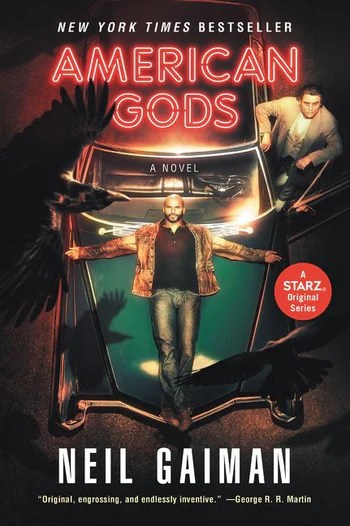
It’s hard to pick a single Neil Gaiman title to put on this list. From American Gods to Stardust, Gaiman’s writing encapsulates everything from darker, modern stories to whimsical, magic-filled fairy tales.
American Gods has probably made the strongest cultural impact and has perhaps his deepest, most intense plots to date. It’s incredibly dark and explores what we, as humans, believe in and why. Gaiman’s prose is at its finest here, offering tons of dreamlike looks that have readers questioning what exactly may have happened page to page.
The Gunslinger by Stephen King

The Gunslinger is the first book in King’s The Dark Tower series, a series that deserves a spot on this list in its entirety. It’s also one of King’s earlier works, having been published after he’d made his name with The Shining and The Stand but before he released classics like Pet Semetary and It.
The Gunslinger‘s world is classic King: dark and perturbed, it takes Wild West aesthetics and mixes them with King’s blend of horror and wit. Many sections often feel unreal or dreamlike, and King breaks the fourth wall many times over the course of the series. King has become a dominating force in both Fantasy and Horror, and this book shows us where it all began.
Game of Thrones by George R. R. Martin
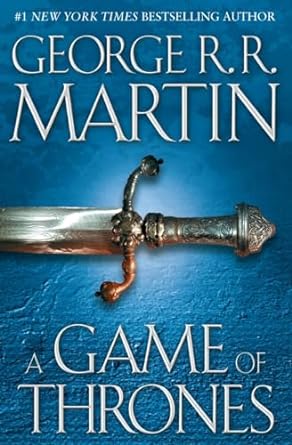
There are many strengths to Game of Thrones, from its incredibly wide worldbuilding to Martin’s vibrant and often brutal prose. To me, however, two qualities stand out above all else: Martin’s ability to create genuine and believable characters quickly and his ability to then murder them, to the reader’s delight or dismay.
The early seasons of the TV show did so well for a reason. This story and its ability to make readers believe no one is safe is fantastic. You also don’t have to think about the show’s miserable ending when reading the books!
The Way of Kings by Brandon Sanderson
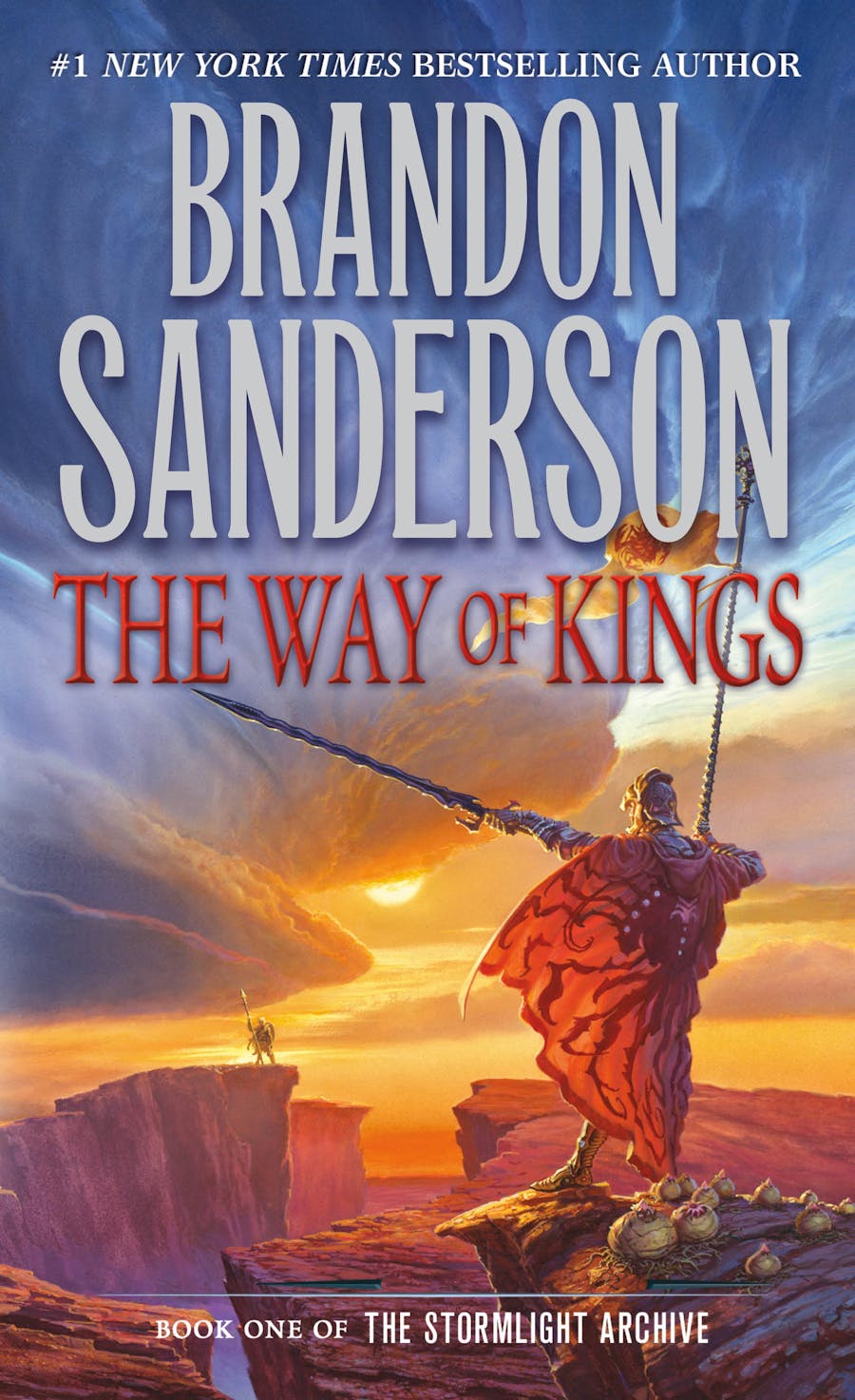
There are times when Brandon Sanderson makes me believe in reincarnation, as if J.R.R. Tolkien died and his soul found its way into Brandon Sanderson. Sanderson is currently the reigning master of worldbuilding, having some of the largest worlds and most in-depth magic systems of any author alive.
The novel can be slow, as action often takes a back seat to worldbuilding, but it can be forgiven. It’s been a long time since any author has put as much thought into a world as Sanderson, and the result is one of the most complete packages you’ll find in Fantasy.
Assassin’s Apprentice by Robin Hobb
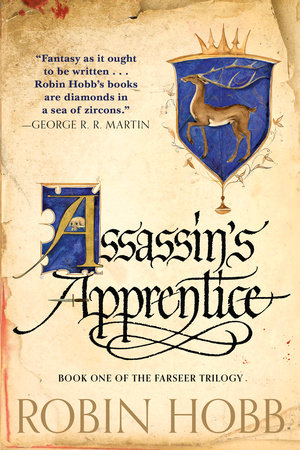
Robin Hobb’s books are all a delight, but we have to start at the beginning with the beloved Fitz. Those who like George R.R. Martin’s works will find much to love here, as the political aspect is incredibly well-crafted, and there will be many characters introduced to love and hate. Assassin’s Apprentice is an absolute classic that has persevered for 30 years and still holds up today.
The Fifth Season by N.K. Jemisin
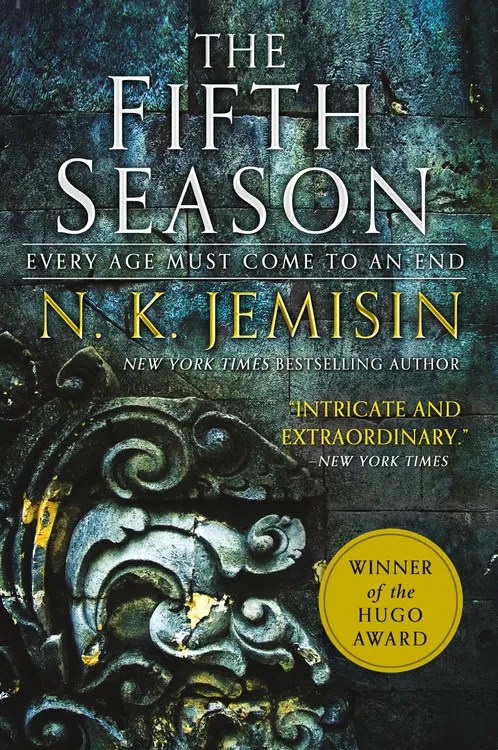
The most modern author on this list, Jemisin dominated fantasy in the 2010s, winning five Hugoes, three of which were for the Broken Earth trilogy. The Fifth Season is the first and, in my opinion, the best in the series.
The Fifth Season tells not only a story of loss but one of generational trauma. Jemisin uses her background as a counselor to really get at the heart of some of these issues while having the writing skill to create the most tightly-plotted novel I’ve ever read. The story is told from three viewpoints, and the way they come together at the end of the first book is insane.
The Wizard of Earthsea by Ursula Le Guin
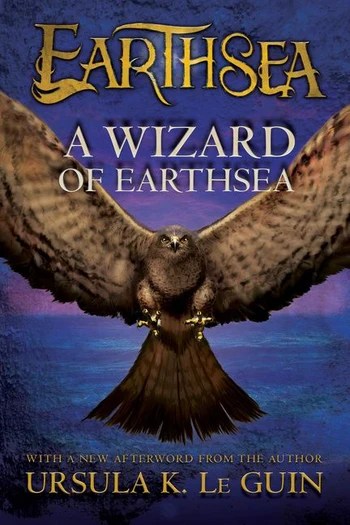
Ursula Le Guin is an author who was told to write a book for children and instead wrote one of the most inventive and unique takes on the wizarding society anyone had ever seen. Le Guin held a healthy respect for the history and cultures of the world, building a world of magic that drew from a number of mythological histories, such as Native American and Norse.
The book was a hit when it was released in the late ’60s, offering many a more realistic look at how we grow up, not by being perfect, but by owning our imperfections and mistakes that make us who we are.
Mort by Terry Pratchett
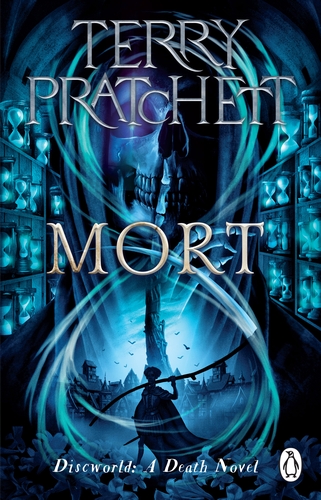
Terry Pratchett is probably the most unique author on this list. He used the hilarious and absurd to drive his novels, with much more profound messages and moments appearing within than you would expect. While any Discworld novel is worth reading, Mort serves as both a solid entry point and a perfect example of Pratchett’s work.
There is a warmth here that is hard to explain. It feels like he understands people, and the goal of his novels is to make us feel joy at what makes us us while we laugh along the entire time. He is just a wonderful man who wrote wonderful books.
The Lord of the Rings by J.R.R Tolkien
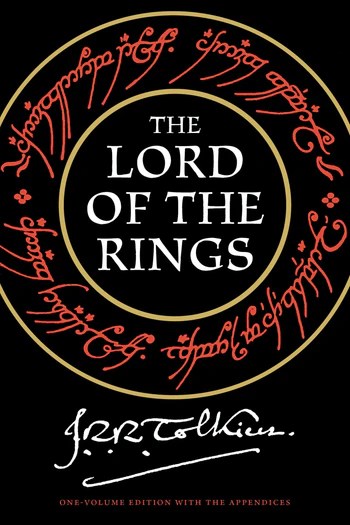
The Lord of the Rings is one of the most recognizable names in history, and the amount of work J.R.R. Tolkien put into making it feel like a completely realized world is remarkable on its own. Tolkien wrote an entirely functional Elvish language from scratch because he felt English wasn’t beautiful enough to speak to his wife. Then, realizing that language doesn’t just spring from nowhere, he wrote a massive novel about the many cultural and historical factors that went into the language’s growth.
The plot is fairly loose, and it’s more of an excuse to follow a band of people through this amazing world he made rather than being character-driven. Even if you don’t like reading it, you must respect it. Many of the building blocks of high fantasy are ripped straight from Tolkien’s pages. As fantasy readers, we really do owe him everything.





Published: Apr 28, 2024 12:30 pm